On a cold winter's day, a baked potato offers both warmth and nourishment. Sweet potatoes are an excellent source of potassium and magnesium, which support healthy bones. They also supply vitamin D. Low-carb diet enthusiasts tend to give normal potatoes a bad rap, yet they are cheap to farm and nutrient-dense. This vegetable has folate, potassium, and magnesium.
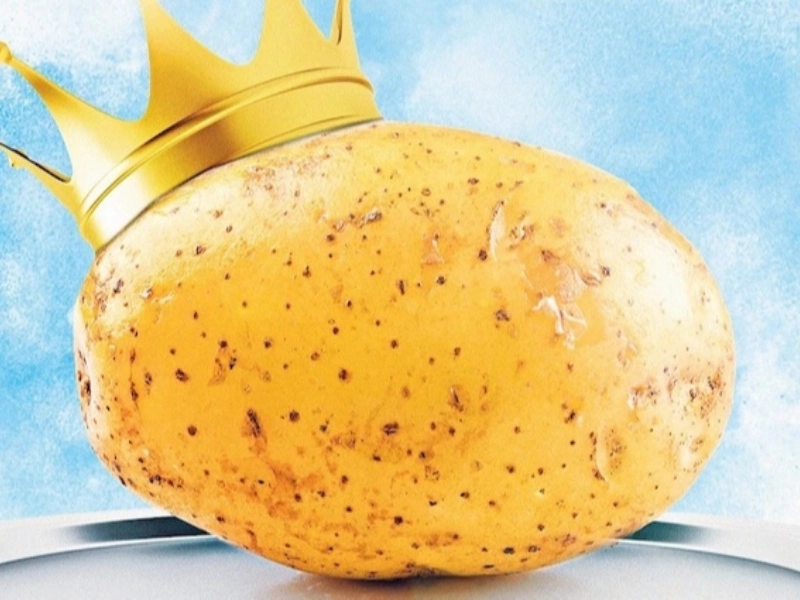
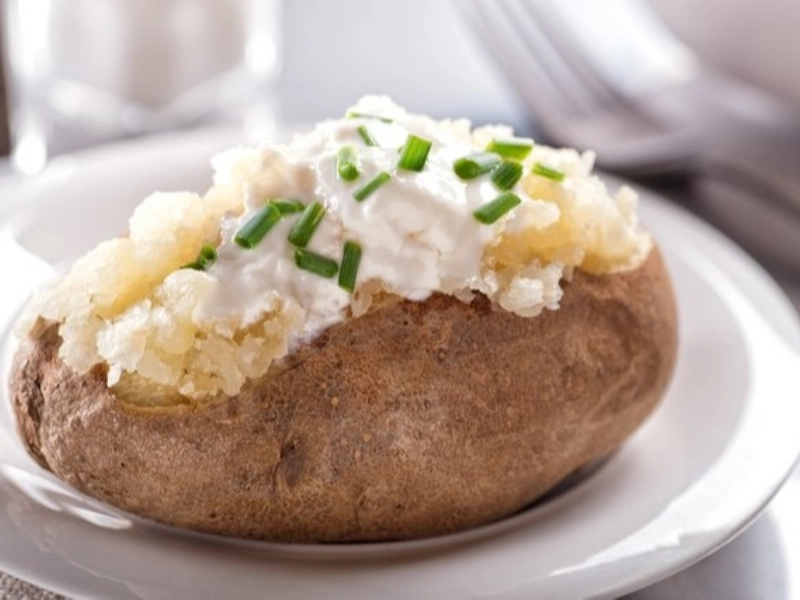 Incorporating potatoes into your diet is a great way to increase your magnesium intake. One cup of cooked potatoes has 8% of the daily intake of magnesium, which is necessary to maintain calcium and phosphorus levels in the body. However, the amount of magnesium in your diet varies depending on how much you eat.
Moreover, magnesium promotes the absorption of vitamin D, which is essential for healthy bones. According to a study, those who took in more magnesium also had greater levels of vitamin D and saw fewer fractures.
To maximize the nutritional value of your potatoes, select a variety. To obtain a range of nutrients, try to combine white potatoes with red, purple, and yellow-fleshed potatoes. Refrain from adding salt, butter, or sour cream because doing so will increase the number of calories.
Incorporating potatoes into your diet is a great way to increase your magnesium intake. One cup of cooked potatoes has 8% of the daily intake of magnesium, which is necessary to maintain calcium and phosphorus levels in the body. However, the amount of magnesium in your diet varies depending on how much you eat.
Moreover, magnesium promotes the absorption of vitamin D, which is essential for healthy bones. According to a study, those who took in more magnesium also had greater levels of vitamin D and saw fewer fractures.
To maximize the nutritional value of your potatoes, select a variety. To obtain a range of nutrients, try to combine white potatoes with red, purple, and yellow-fleshed potatoes. Refrain from adding salt, butter, or sour cream because doing so will increase the number of calories.
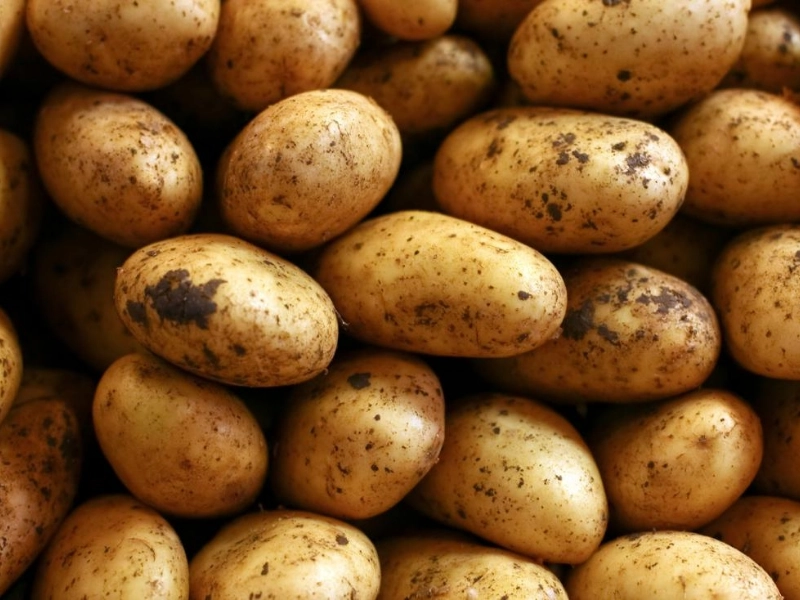 A medium-sized potato contains four milligrammes of potassium, a mineral that helps balance the phosphorouso-cacalcium ratio and supports bone strength. Potatoes also contain vitamin C, which is another essential ingredient. It is an antioxidant that promotes heart health and immunity.
According to a 2021 study published in Nutrients, blood pressure can be naturally lowered by following a diet that provides the required daily consumption of potassium, which is 4,700 milligrams, can naturally lower blood pressure. Potassium promotes vasodilation, the widening of blood vessels that lowers blood pressure. Aside from potatoes, leafy greens, bananas, oranges, beans, and squash are also excellent providers of potassium. For cooking, choose colorful potatoes, such as purple or sweet potatoes, because they are higher in antioxidants. Additionally, keep in mind not to eat any potatoes that have begun to rot.
A medium-sized potato contains four milligrammes of potassium, a mineral that helps balance the phosphorouso-cacalcium ratio and supports bone strength. Potatoes also contain vitamin C, which is another essential ingredient. It is an antioxidant that promotes heart health and immunity.
According to a 2021 study published in Nutrients, blood pressure can be naturally lowered by following a diet that provides the required daily consumption of potassium, which is 4,700 milligrams, can naturally lower blood pressure. Potassium promotes vasodilation, the widening of blood vessels that lowers blood pressure. Aside from potatoes, leafy greens, bananas, oranges, beans, and squash are also excellent providers of potassium. For cooking, choose colorful potatoes, such as purple or sweet potatoes, because they are higher in antioxidants. Additionally, keep in mind not to eat any potatoes that have begun to rot.
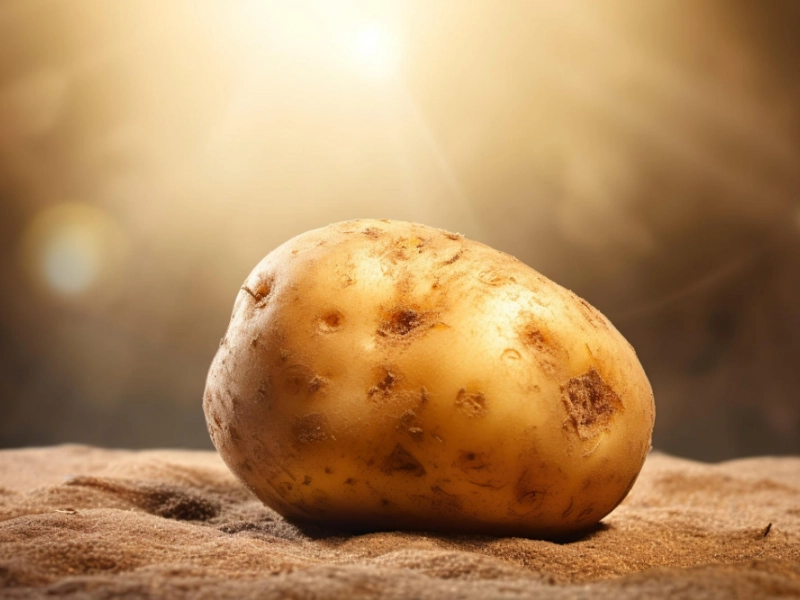 Your body uses the iron in potatoes to carry out chemical reactions that speed up metabolism and help produce usable energy. It also guards against cellular damage and enhances red blood cell function.
Vitamin C from potato skins supports bone health by improving calcium absorption and preserving appropriate amounts of calcium, phosphorus, and magnesium in your body. You can almost completely meet your daily requirement of vitamin C with just one medium-sized roasted potato.
Potatoes are heavy on oil, butter, and salt, yet they are low in sodium. Additionally, they are alkalizing and aid in lowering cholesterol when left unpeeled. Select potatoes with smooth skin, firm texture, and no eyes or discoloration when purchasing. Steer clear of those with green tints, bruising, wounds, or sprouts, as they may contain solanine or other harmful alkaloids.
Your body uses the iron in potatoes to carry out chemical reactions that speed up metabolism and help produce usable energy. It also guards against cellular damage and enhances red blood cell function.
Vitamin C from potato skins supports bone health by improving calcium absorption and preserving appropriate amounts of calcium, phosphorus, and magnesium in your body. You can almost completely meet your daily requirement of vitamin C with just one medium-sized roasted potato.
Potatoes are heavy on oil, butter, and salt, yet they are low in sodium. Additionally, they are alkalizing and aid in lowering cholesterol when left unpeeled. Select potatoes with smooth skin, firm texture, and no eyes or discoloration when purchasing. Steer clear of those with green tints, bruising, wounds, or sprouts, as they may contain solanine or other harmful alkaloids.
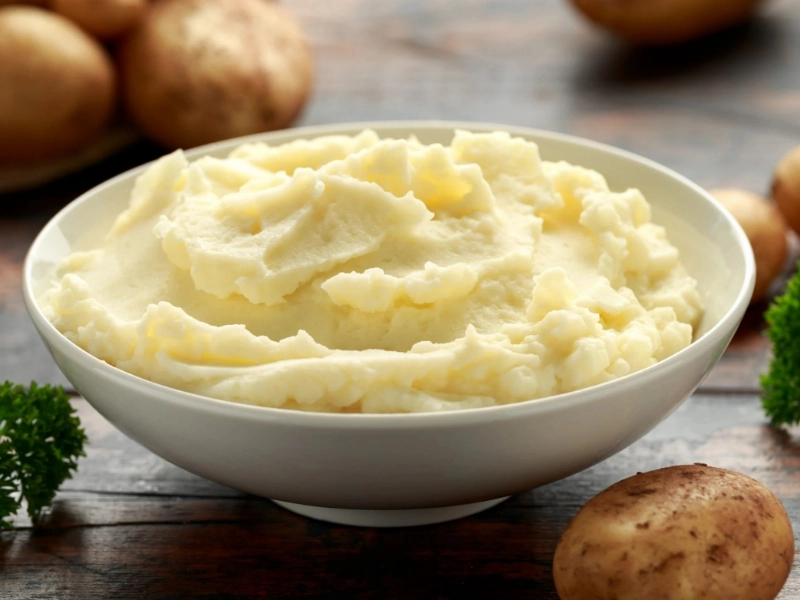 Zinc in potatoes combines with iron in order to help make collagen, which is critical for bone formation. Low zinc levels may link to osteoporosis. Potatoes also contain copper, another mineral that aids in the formation of collagen. Eating a range of foods, such as potatoes, avocados, kale and other leafy green vegetables, beans, nuts (cashews), chicken, red meat, whole grains, and chocolate, will provide you with the appropriate quantities of these minerals.
Sweet potatoes are a good source of phosphorus, magnesium, and calcium. Just one cup of cooked sweet potatoes meets eight percent of the daily requirements for dietary calcium, fourteen percent for magnesium, and eleven percent for phosphorus. Additionally, they include potassium, which counteracts the body's acids that dissolve calcium from bones.
Zinc in potatoes combines with iron in order to help make collagen, which is critical for bone formation. Low zinc levels may link to osteoporosis. Potatoes also contain copper, another mineral that aids in the formation of collagen. Eating a range of foods, such as potatoes, avocados, kale and other leafy green vegetables, beans, nuts (cashews), chicken, red meat, whole grains, and chocolate, will provide you with the appropriate quantities of these minerals.
Sweet potatoes are a good source of phosphorus, magnesium, and calcium. Just one cup of cooked sweet potatoes meets eight percent of the daily requirements for dietary calcium, fourteen percent for magnesium, and eleven percent for phosphorus. Additionally, they include potassium, which counteracts the body's acids that dissolve calcium from bones.